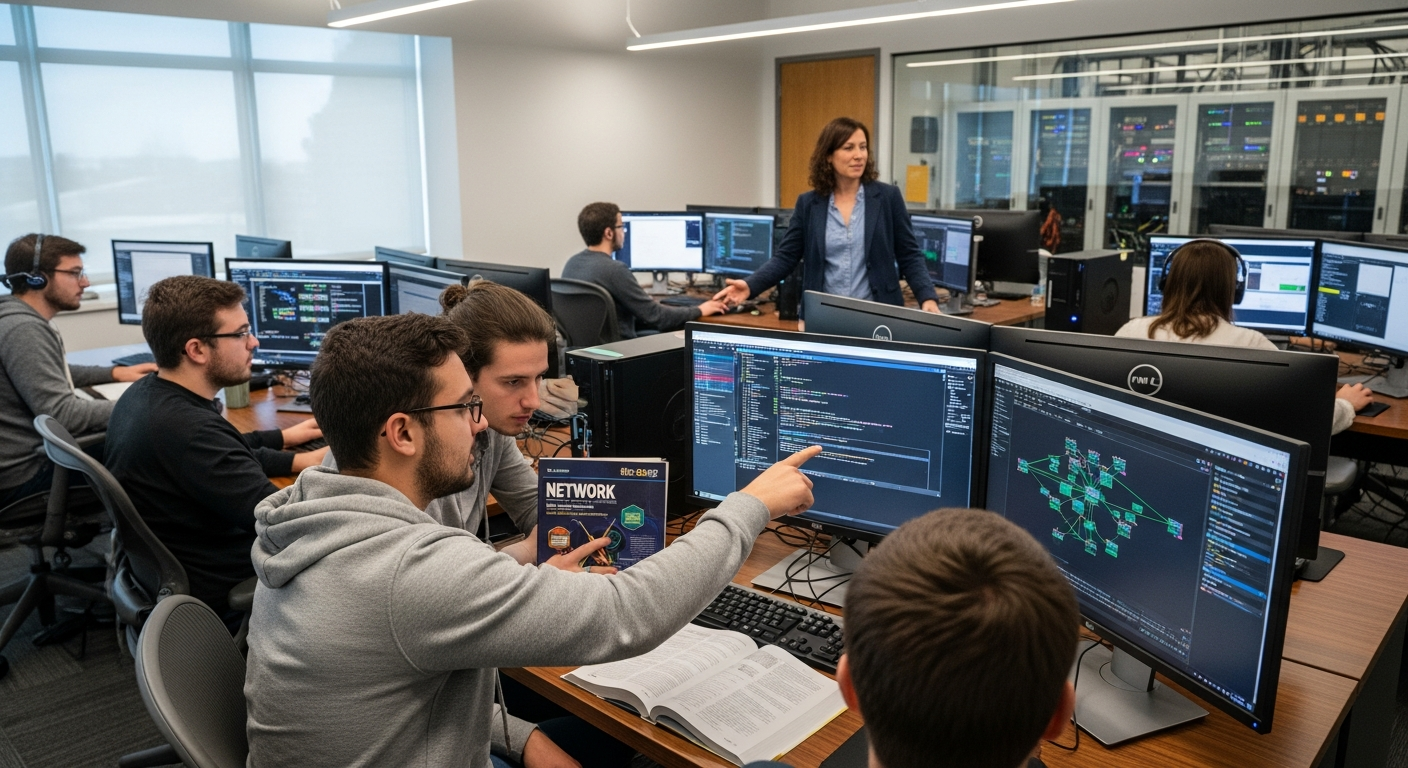Building a Career in Digital Protection: Education Options
The growing threat landscape in digital spaces has created unprecedented demand for skilled professionals who can protect systems, networks, and data from cyberattacks. For students and professionals in Nepal looking to enter this field, understanding the educational pathways available is essential. From traditional university programs to flexible online learning platforms, multiple routes can lead to a rewarding career in digital protection.

Online Programs in Cyber Security for 2025
The digital transformation accelerating across Nepal and globally has made online education more accessible than ever. Several international universities and specialized platforms now offer comprehensive programs designed to build foundational and advanced skills in protecting digital infrastructure. These programs typically cover network security, ethical hacking, cryptography, risk management, and incident response.
Online learning provides flexibility for working professionals or students who need to balance education with other commitments. Many programs are self-paced, allowing learners to progress according to their schedule while accessing recorded lectures, interactive labs, and virtual simulations. Accredited institutions often provide the same curriculum online as their on-campus counterparts, ensuring quality education regardless of location.
For Nepali students, online programs eliminate geographical barriers and provide access to instruction from global experts. However, prospective students should verify accreditation status, program structure, and whether certifications or degrees are recognized by relevant professional bodies and employers in their target job market.
Cyber Security Training Options to Explore This Year
Beyond formal degree programs, various training pathways can help individuals develop specialized skills in digital protection. Professional certifications have become increasingly valuable in the industry, often complementing or even substituting for traditional degrees in certain roles.
Bootcamps offer intensive, short-term training focused on practical skills. These programs typically last between 12 to 24 weeks and emphasize hands-on experience with current tools and techniques. Many bootcamps also provide career services, helping graduates connect with potential employers.
Industry certifications such as CompTIA Security+, Certified Ethical Hacker (CEH), and Certified Information Systems Security Professional (CISSP) are widely recognized credentials that demonstrate specific competencies. While some certifications require work experience, entry-level options are available for those just starting their journey.
Local training centers in Nepal have also begun offering courses tailored to the regional job market, often at more affordable rates than international programs. These options may include in-person instruction, which some learners prefer for networking and direct interaction with instructors.
Educational Paths for a Future in Digital Protection
Multiple educational routes can lead to a successful career in protecting digital assets. Understanding these pathways helps prospective students make informed decisions based on their circumstances, goals, and resources.
Bachelor’s degree programs typically span four years and provide comprehensive education covering computer science fundamentals alongside specialized security topics. These programs often include mathematics, programming, networking, and system administration courses before advancing to specialized security subjects.
Master’s degree programs, usually requiring two additional years after a bachelor’s degree, offer advanced study in areas such as digital forensics, secure software development, or security architecture. These programs suit professionals seeking leadership roles or specialization in particular domains.
Associate degrees and diploma programs, typically completed in two years, offer faster entry into the field with foundational knowledge. Graduates often pursue entry-level positions while continuing education part-time.
Self-directed learning through online resources, tutorials, and practice labs has become increasingly viable. Platforms offering free and paid courses allow motivated individuals to build skills independently, though this path requires significant discipline and may lack formal credentials valued by employers.
Cost Considerations for Educational Programs
Understanding the financial investment required for education in digital protection helps students plan effectively and choose appropriate pathways. Costs vary significantly based on program type, institution, and delivery method.
International online degree programs from accredited universities typically range from $15,000 to $50,000 for complete programs, with some prestigious institutions charging higher fees. Professional bootcamps generally cost between $8,000 and $20,000 for intensive programs lasting several months.
Individual certification exams range from $300 to $700, though preparation materials and training courses add to the total investment. Some certifications require renewal fees and continuing education, creating ongoing costs.
Local institutions in Nepal often provide more affordable options, with diploma and certificate programs ranging from NPR 100,000 to NPR 500,000 depending on duration and comprehensiveness. Some organizations offer scholarship opportunities or payment plans to increase accessibility.
| Program Type | Provider Example | Typical Cost Range |
|---|---|---|
| Online Bachelor’s Degree | International Universities | $20,000 - $40,000 |
| Professional Bootcamp | Specialized Training Platforms | $8,000 - $15,000 |
| Industry Certification | CompTIA, EC-Council, (ISC)² | $300 - $700 per exam |
| Local Diploma Program | Nepali Technical Institutes | NPR 150,000 - NPR 400,000 |
| Self-Paced Online Courses | Learning Platforms | $50 - $500 per course |
Prices, rates, or cost estimates mentioned in this article are based on the latest available information but may change over time. Independent research is advised before making financial decisions.
Skills Developed Through Formal Education
Regardless of the specific pathway chosen, quality educational programs in digital protection develop both technical and analytical capabilities. Students learn to identify vulnerabilities in systems, implement protective measures, and respond effectively to security incidents.
Technical skills include understanding operating systems, network protocols, encryption methods, and security tools. Practical experience with penetration testing, security auditing, and incident response prepares graduates for real-world challenges.
Analytical and problem-solving abilities are equally important. Security professionals must think like potential attackers while developing defensive strategies. Critical thinking helps in assessing risks, prioritizing threats, and making sound decisions under pressure.
Communication skills are often overlooked but essential. Security professionals must explain technical concepts to non-technical stakeholders, write clear reports, and collaborate with diverse teams across organizations.
Making the Right Educational Choice
Selecting an appropriate educational path requires careful consideration of multiple factors. Career goals, current skill level, available time, and financial resources all influence the decision.
Prospective students should research program curricula, instructor qualifications, and graduate outcomes. Speaking with alumni and current students provides valuable insights into program quality and relevance. Accreditation and industry recognition ensure that credentials will be valued by employers.
For those in Nepal, considering both international and local options provides a complete picture of possibilities. Some students pursue hybrid approaches, combining local foundational education with international certifications to maximize both affordability and global recognition.
The field of digital protection continues evolving rapidly, making continuous learning essential regardless of initial educational choice. Successful professionals commit to ongoing skill development throughout their careers, adapting to new threats and technologies as they emerge.
With thoughtful planning and dedication, the educational pathways available today can lead to meaningful careers protecting the digital infrastructure that increasingly underpins modern society.




